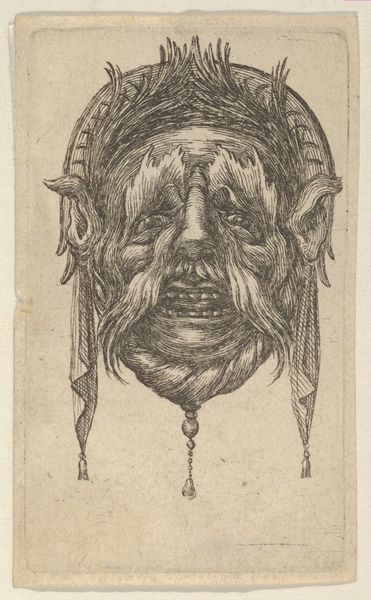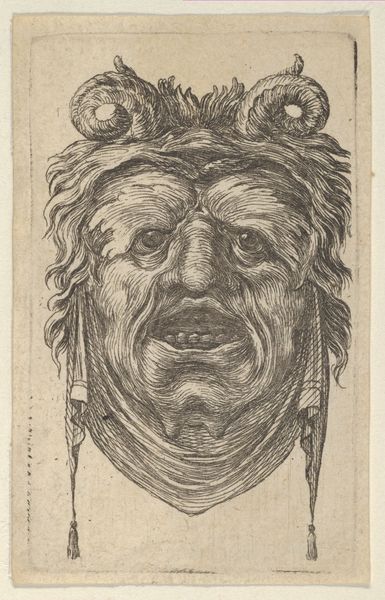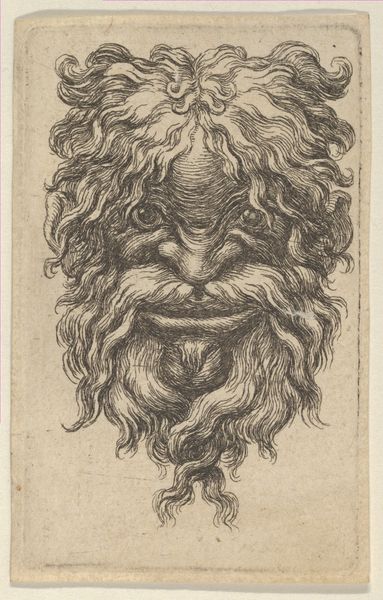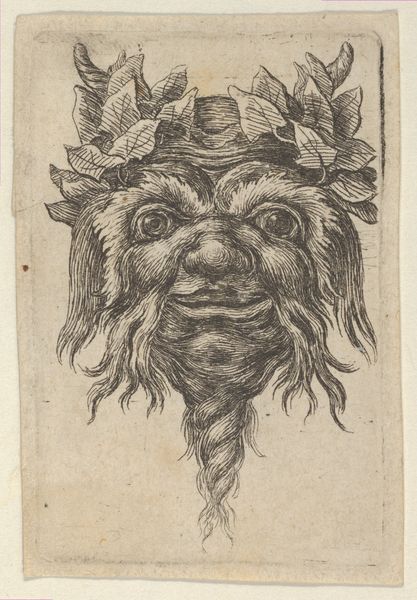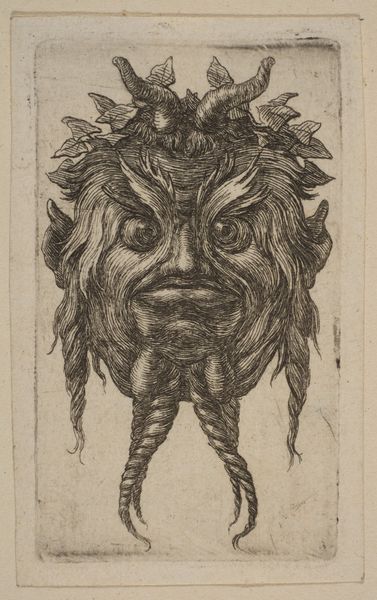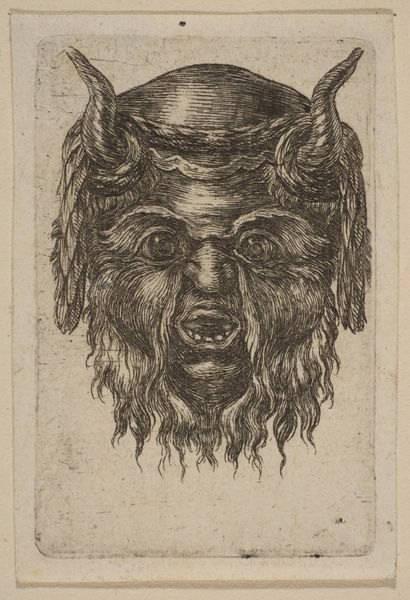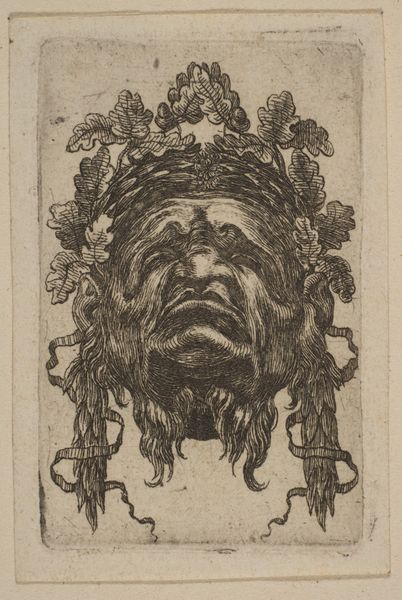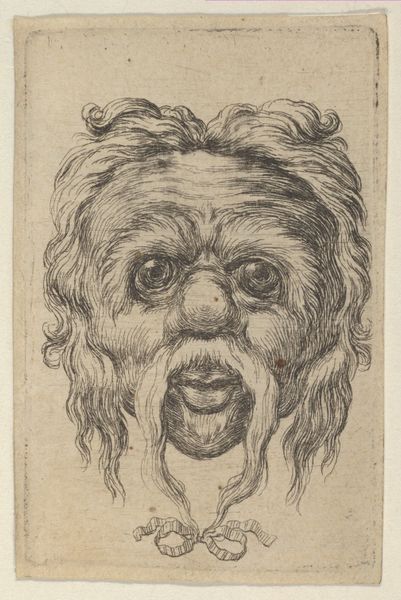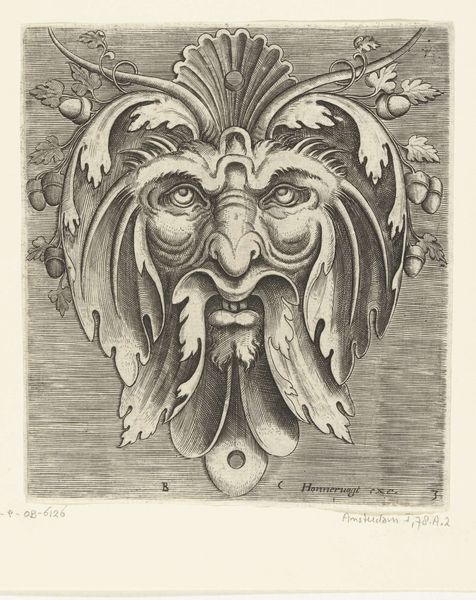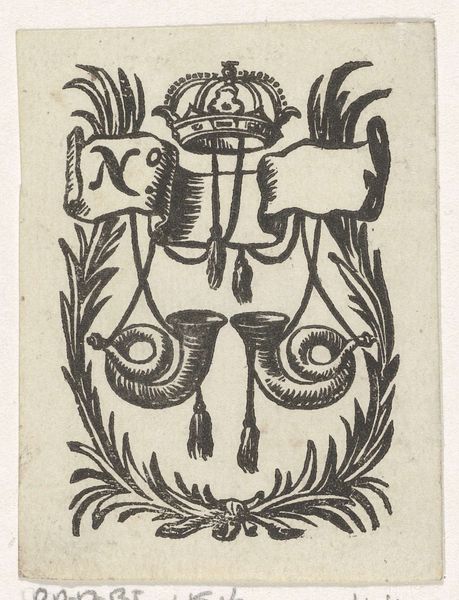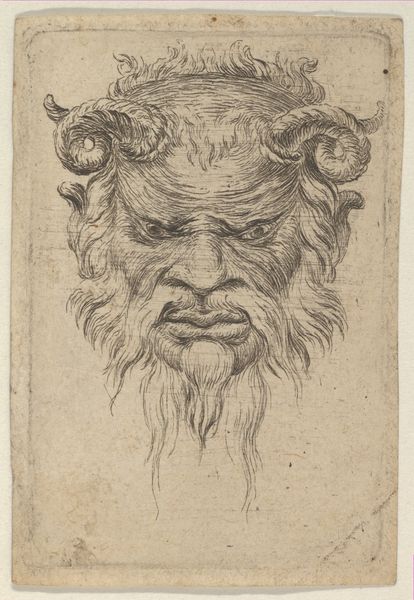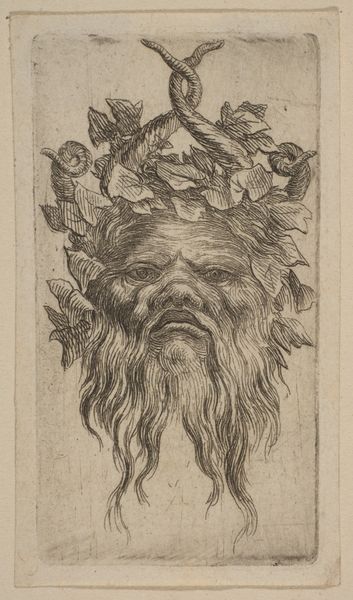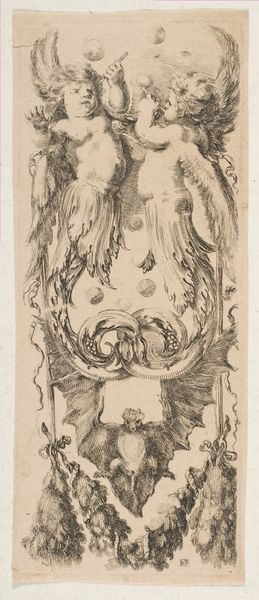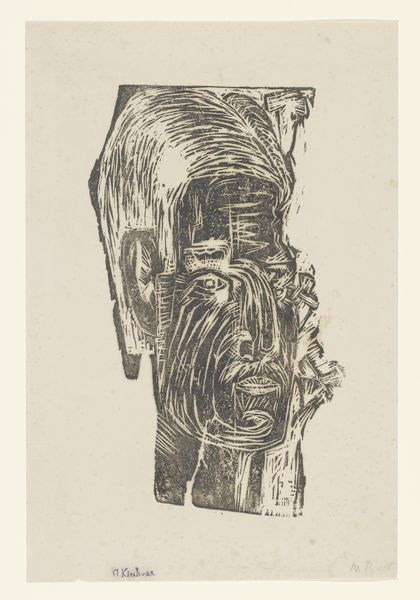
drawing, print, engraving
#
drawing
#
baroque
# print
#
figuration
#
engraving
Copyright: Public Domain
Curator: This etching, titled "Mask," comes to us from the Baroque artist Stefano della Bella, circa 1610 to 1664. He made this print using engraving on, it appears, laid paper. Editor: My first impression is, admittedly, one of unease. There is something about the face that, even in its small scale, feels rather imposing. Its downward gaze almost makes one feel as if they're being judged. Curator: I find it intriguing how della Bella uses line to create a sense of texture. Notice the density of lines that suggest both light and shadow. How he manipulates the cross-hatching in areas like the hair versus the smoother gradations on the face itself. This demonstrates an incredible understanding of form. Editor: But it's precisely that understanding that unsettles me. To what end? Baroque art was frequently tied to power. What is the message? Who benefits? That toothy grin combined with what might be best described as tusks makes me think of power—the way a lord would look down on their subjects. What power structure is it reflecting or even enforcing? Curator: Perhaps, but couldn't we also see it as a comment on the very artificiality of courtly life? Masks conceal. Could this be a meditation on that concealment and the facade it represents, using, indeed, very controlled artistic methods? Editor: Possibly. Although I also see it speaking to an unequal society—this 'mask' and its features are hardly egalitarian, as is reinforced by its status as artwork, a print owned, perhaps, by the aristocracy, or upper merchant class. What about its original viewer? This isn't some innocuous bauble, its symbolic power resonates even centuries later. Curator: You present a valid reading. Perhaps the tension comes from this exact point where artistry and agency converge. Della Bella's skill presents not just a mask, but perhaps poses a reflection on its meaning, intentionally or otherwise. Editor: Maybe, yes. By dissecting those very methods, and contextualizing within the period and its inherent power struggles, can we reveal its significance today. To simply consider line or tone alone falls drastically short, it lacks insight to its function as an object, produced by an unequal, bygone society.
Comments
No comments
Be the first to comment and join the conversation on the ultimate creative platform.
